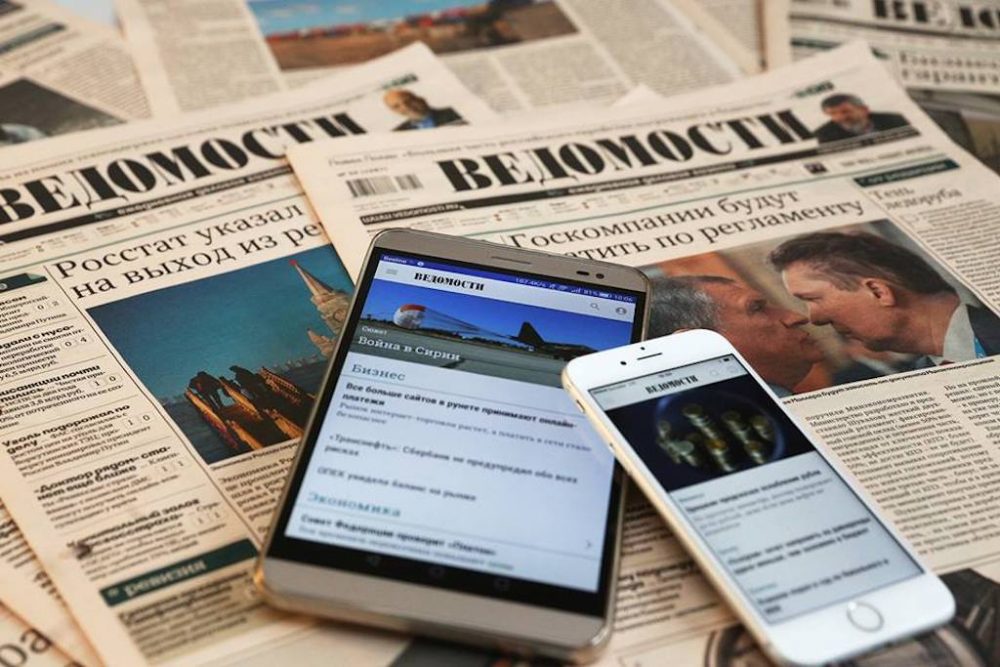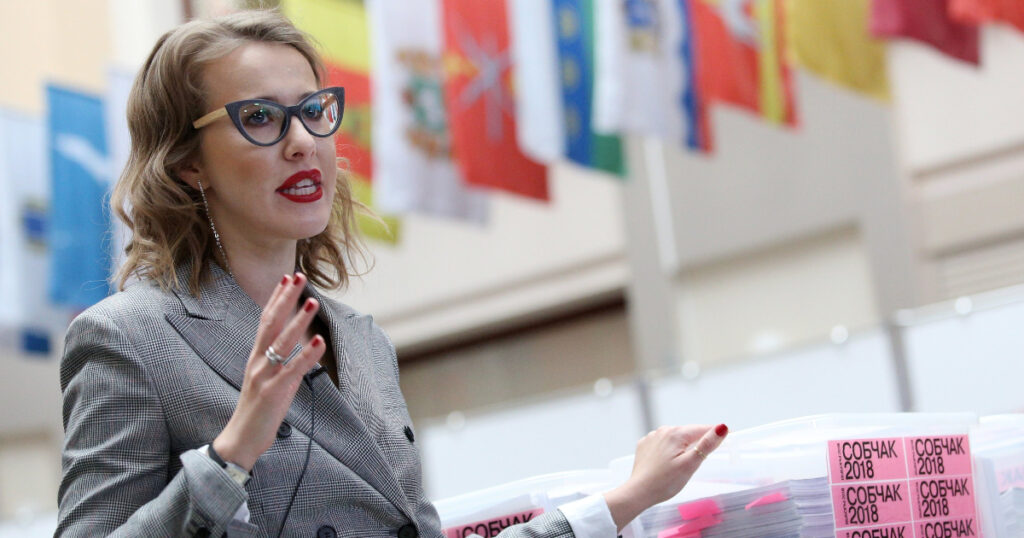
Constitutional referendum underway
Hello! This week our top story is on the start of voting in Russia’s constitutional referendum that will pave the way for Vladimir Putin to remain president until 2036. We also look at Putin’s fantastical plan to turn Russia into an IT hub and why TV presenter Ksenia Sobchak’s social media posts on Black Lives Matter protests in the U.S. led to allegations of racism.
Voting underway in Putin’s constitutional referendum
This week marked the beginning of the constitutional referendum that will likely ‘reset’ Putin’s presidential term count and allow him to remain Russian leader until 2036. In the build up to the vote, Putin gave a live TV address in which he praised Russia’s response to the coronavirus crisis and announced the biggest tax rise in over two decades.
- Voting in the referendum began Thursday and will last a week. Russians must give a simple yes/no answer to a question on whether they approve of a series of amendments to the constitution, including ‘resetting’ Putin’s term count. The internet was immediately flooded with photos from polling stations that — because of coronavirus — were on benches, in courtyards, car trunks, and children’s playgrounds. These ‘stations’ were no more than two or three electoral officials and an urn to collect votes. It may be safer to collect votes outdoors, but the opportunities for electoral fraud are obvious.
- In two regions (Moscow and Nizhny Novgorod) you can vote online. Problems with the system were found even before it launched: last week, a journalist at Dozhd TV station (who formerly worked at The Bell), Anton Baev, found that dozens of elderly people were being registered on the online voting system without their permission via forged sim-cards. Baev received a police summons for his efforts.

One of the polling stations
- Once voting began, another Dozhd journalist, Pavel Lobkov, voted twice: online and in person. After doing so, he described the process live on air on TV Rain, which resulted in a similar visit from the police.
- High turnout is the holy grail for Kremlin strategists. Media outlet Meduza reported (Rus), on a new system developed by state-owned companies to monitor whether their employees cast their ballots. It allows managers at state-owned companies to track staff members via individual QR codes that are scanned by volunteers at polling stations under the pretext of special raffles.
- Putin’s address to the nation this week was also an attempt to motivate voters. He promised one off payments to families with children, but more importantly, he announced an increase in the income tax rate from 13 to 15 percent for people earning over 5 million rubles ($71,000) annually. Putin suggested using this money (about $860 million a year) to provide medical treatment for children with rare illnesses.
- The tax hike is a deeply populist measure designed to meet a demand for social justice, rather than help the economy. Less than 1 percent of Russians will be affected by the new tax, and most will barely notice a change (the higher rate will only be applied to the portion of income that is in excess of 5 million rubles).
Why the world should care
Demands for social justice are real, but people want fixed prices rather than higher taxes, according to Denis Volkov, the deputy head of independent pollster the Levada Center. Hatred of ‘the rich’ is directed towards specific oligarchs from the 1990s, and not against all wealthy people. Volkov said that the increase in income tax is a desperate attempt to lift Putin’s falling approval ratings ahead of the referendum. Its effect will be fleeting, not long-term.
Putin wants Russia to become an IT hub
In a televised address to the nation Tuesday, Putin also announced big tax cuts for the IT sector, apparently a bid to “turn Russia into India” by using tax incentives to attract and retain tech entrepreneurs. Putin claimed that, even in the midst of a pandemic, it was clear how the Russian IT sector has “powerful technologies and human capital opportunities.”
- Putin said interest rates on insurance payments for IT companies will be lowered from 14 percent to 7.6 percent while they will also see corporation profit tax slashed from 20 percent to 3 percent. This is even better than “jurisdictions like India and Ireland,” according to Putin.
- The new profit tax rate is comparable to Cyprus, a favorite location for Russian IT companies (in Cyprus it’s 2.5 percent). But it’s higher than Belarus where the rate is 0 percent and President Alexander Lukashenko wants to build a local ‘Silicon Valley’.
- The initiative is part of major reform of the IT sector and the personal initiative of Prime Minister Mikhail Mishustin, according to a Kremlin official and a government relations specialist at a major IT company. Mishustin has “big plans to develop IT in Russia, and is always pushing the idea that IT is the most important driver of the economy”, one of these sources told The Bell. The tax breaks will hopefully become part of a major tax reform making it unappealing for companies to locate their businesses in offshore zones, according to two IT entrepreneurs from Russia who took their businesses abroad.
- The day after the announcement it became clear the proposal was not as straightforward as many thought. Kommersant newspaper reported the government could increase VAT on software in a bid to compensate its losses from the tax breaks. Unsurprisingly, it is the companies that stand to gain most from paying less tax that make most of their money from software development — including internet giant Yandex.
Why the world should care
Unease about Russia’s IT brain drain is justified: there are dozens of IT entrepreneurs who have moved abroad (from Playrix to Revolut). Taxes play an important role in such decisions, but they are usually not key. Political predictability is no less important, and so is an impartial court system. Russia lacks both of these.
Audi drops Sobchak over racism allegations
Russian TV presenter and former presidential candidate Ksenia Sobchak was dropped as a brand ambassador by German carmaker Audi on Wednesday over social media posts she made about the Black Lives Matter protests. The decision was reminiscent of how Pepsi cut ties with TV journalist Regina Todorenko last month when she defended domestic violence. The only difference is that Todorenko apologised and made a large donation to charity, whereas Sobchak is suing the journalists who reported her words.
- Sobchak has repeatedly commented on the BLM protests. In one Instagram post, she argued (Rus) that Naomi Campbell, Oprah Winfrey and Barack Obama show black people in the U.S. are not disadvantaged, and that those who are unsuccessful will “always find ways of justifying their own laziness and stupidity”. Several days later, she posted (Rus) a black square overlaid with a fragment of a 1990s Russian rock song called ‘They killed a negro’. After Sobchak deleted this post, it emerged (Rus) that it had apparently been part of a dare for a YouTube show.

- The posts came to Audi’s attention when the German version of Business Insider published an article (Ger) describing Sobchak’s antics as ‘another racist scandal for Volkswagen group: brand ambassador in Russia called black people stupid and lazy’. Audi swiftly announced it was ending its 8-year partnership with Sobchak. The value of the contract in question has not been disclosed.
- In response, Sobchak said her words were twisted and that she will sue Business Insider for libel. In an Instagram post apparently meant to clarify her position, she said she believes that “people are NOT divided into white or black, Caucasian and Asian. But people can be divided into smart and stupid.”
- Sobchak’s outspokenness on this issue is not unique, and many liberals who oppose the Putin regime have criticized BLM. Satirist Viktor Shenderovich said (Rus) there was no systemic racism in the U.S., while economist Viktor Inozemtsev complained (Rus) media coverage of BLM ignored George Floyd’s previous criminal convictions.
- While some approved of Sobchak’s posts, many of the TV star’s Russian followers were angered. They reminded Sobchak that someone as privileged as her is not best placed to talk about systemic discrimination. And, by Russian standards, Sobchak is about as privileged as they come. Her father was the first mayor of St. Petersburg and Putin’s political mentor, while her mother is still a senator in the Russian parliament.
Why the world should care
Russian influencers are only just beginning to understand that they can lose large amounts of money for violating the ethics of the Western brands they represent. However, Sobchak’s views are not entirely unrepresentative. Even in progressive circles, there are serious differences of opinion when it comes to issues like sexual harassment and the BLM movement.





